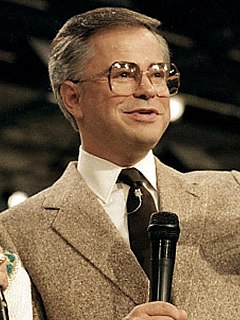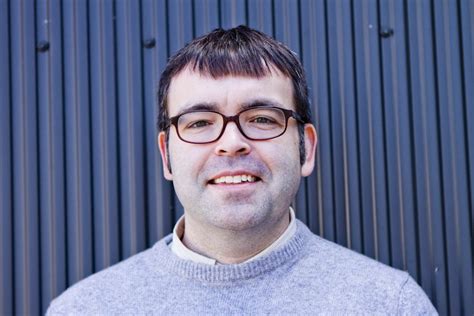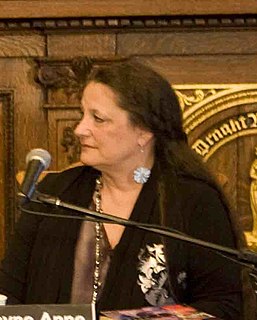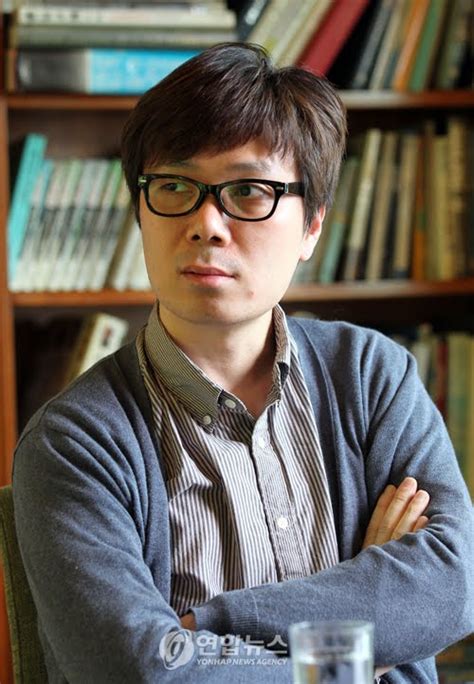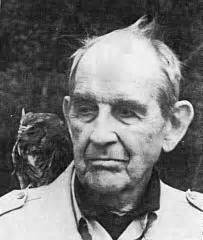Top 1200 One Sentence Quotes & Sayings
Explore popular One Sentence quotes.
Last updated on April 14, 2025.
The prospect of his future life stretched before him like a sentence; not a prison sentence but a long-winded sentence with a lot of unnecessary subordinate clauses, as he was soon in the habit of quipping during Happy Hour pickup time at the local campus bars and pubs. He couldn’t say he was looking forward to it, this rest-of-his-life.
A dependent clause (a sentence fragment set off by commas, dontcha know) helps you explore your story by moving you deeper into the sentence. It allows you to stop and think harder about what you've already written. Often the story you're looking for is inside the sentence. The dependent clause helps you uncover it.
A sentence is like a tune. A memorable sentence gives its emotion a melodic shape. You want to hear it again, say it—in a way, to hum it to yourself. You desire, if only in the sound studio of your imagination, to repeat the physical experience of that sentence. That craving, emotional and intellectual but beginning in the body with a certain gesture of sound, is near the heart of poetry.
There is no single formula for good sentence. An invisible integument that gives the sentence wholeness and musicality, sometimes. But other times, the formula is almost purely one of context. And yet other times, of sheer precision of meaning. This is a good sentence: "Just as he was settling into the warm mud of alcoholic gloom, Shrike caught his arm." "Warm mud of alcoholic gloom" is exact and right and accurate.
But sometimes when I was starting a new story and I could not get it going, I would sit in front of the fire and squeeze the peel of the little oranges into the edge of the flame and watch the sputter of blue that they made. I would stand and look out over the roofs of Paris and think, 'Do not worry. You have always written before and you will write now. All you have to do is write one true sentence. Write the truest sentence that you know.' So finally I would write one true sentence, and then go on from there.
Every sentence has a truth waiting at the end of it and the writer learns how to know it when he finally gets there. On one level this truth is the swing of the sentence, the beat and poise, but down deeper it's the integrity of the writer as he matches with the language. I've always seen myself in sentences. I begin to recognize myself, word by word, as I work through a sentence. The language of my books has shaped me as a man. There's a moral force in a sentence when it comes out right. It speaks the writer's will to live.
The first sentence of the truth is always the hardest. Each of us had a first sentence, and most of us found the strength to say it out loud to someone who deserved to hear it. What we hoped, and what we found, was that the second sentence of the truth is always easier than the first, and the third sentence is even easier than that. Suddenly you are speaking the truth in paragraphs, in pages. The fear, the nervousness, is still there, but it is joined by a new confidence. All along, you've used the first sentence as a lock. But now you find that it's the key.
Never trust the translation or interpretation of something without first trusting its interpreter. One word absent from a sentence can drastically change the true intended meaning of the entire sentence. For instance, if the word love is intentionally or accidentally replaced with hate in a sentence, its effect could trigger a war or false dogma.
The arrangement of the words matters, and the arrangement you want can be found in the picture in your mind. The picture dictates the arrangement. The picture dictates whether this will be a sentence with or without clauses, a sentence that ends hard or a dying-fall sentence, long or short, active or passive.
Native speakers of a language know intuitively whether a sentence is grammatical or not. They usually cannot specify exactly what is wrong, and very possibly they make the same mistakes in their own speech, but they know-unconsciously, not as a set of rules they learned in school-when a sentence is incorrect.
It's kind of like sentencing. A lot of people say that we have a heavy sentence for this crime and a light sentence for another crime, and what we ought to do is reduce the heavy sentence so it's more in line with the other. Wrong. In most cases we ought to increase the light sentence and make it compatible with the heavy sentence, and be serious about punishment because we are becoming too tolerant as a society, folks, especially of crime, in too many parts of the country.
Writing is linear and sequential; Sentence B must follow Sentence A, and Sentence C must follow Sentence B, and eventually you get to Sentence Z. The hard part of writing isn't the writing; it's the thinking. You can solve most of your writing problems if you stop after every sentence and ask: What does the reader need to know next?
There is a slovenly disrespect for truth and reality that has infected and cross-infected the arts; the values of entertainment are relentlessly in the ascendant, to the extent that it becomes virtually impossible to write a naturalistic fictional sentence without feeling that the fabric of that sentence is already compromised.
